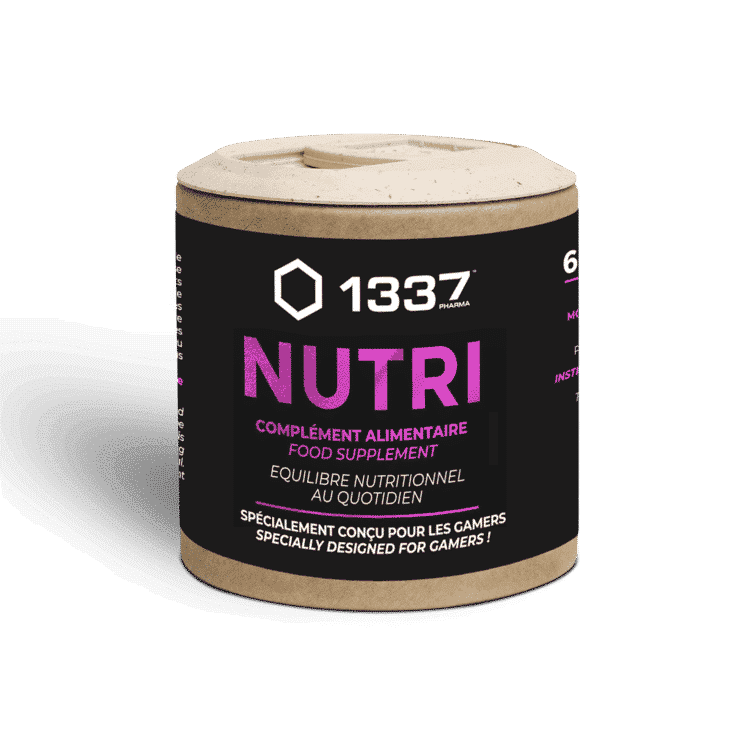VITAMIN D
Ingredient
What is Vitamin D?
Where does it come from?
Why is it used?
What are the benefits?
Bibliography
What is Vitamin D?
Your body naturally produces vitamin D when exposed to direct sunlight. You can also get vitamin D from certain foods and supplements to ensure adequate levels of this vitamin in your blood.
Vitamin D has several important functions. Perhaps the most vital are regulating the absorption of calcium and phosphorus and facilitating the normal functioning of the immune system (Office of Dietary Supplements – Vitamin D, nd) Adequate intake of vitamin D is important for proper growth and normal development of bones and teeth, as well as for better resistance to certain diseases.
Here’s more information about the benefits of vitamin D, along with information about its downsides, how much you need, and foods that contain vitamin D.
Where does it come from?
Some foods naturally contain vitamin D, others are fortified with it. You can find vitamin D in the following foods (Office of Dietary Supplements – Vitamin D, nd):
• Salmon
• Sardines
• Herring
• Canned tuna
• Cod liver oil
• Liver of beef
• Egg yolk
• Shrimp
• Ordinary mushrooms and those treated with ultraviolet rays
• Milk (fortified)
• Certain cereals and oatmeal (enriched)
• Yogurt (enriched)
• Orange juice (enriched)
It can be difficult to get enough vitamin D each day from exposure to sunlight and diet alone. Taking vitamin D supplements can therefore be helpful.
Why is it used?
• Vitamin D can fight disease
In addition to its main benefits, research suggests that vitamin D may also play a role in:
Reduce the risk of multiple sclerosis (MS). A 2018 review of population-based studies found that low vitamin D levels are linked to an increased risk of MS (Sintzel et al., 2018)
Decrease the risk of heart disease. Low levels of vitamin D have been linked to an increased risk of heart diseases such as hypertension, heart failure and stroke.
But it’s unclear whether vitamin D deficiency contributes to heart disease or is just a sign of poor health when you have a chronic condition (Saponaro et al., 2019)
Reduce the likelihood of serious illnesses. Although studies are mixed, vitamin D may make serious flu and COVID-19 infections less likely. A recent study found that low vitamin D levels contribute to acute respiratory distress syndrome (Chen et al., 2021; Grant et al., 2020).
Immune health support. People who lack adequate levels of vitamin D may have an increased risk of infections and autoimmune diseases, such as rheumatoid arthritis, type 1 diabetes, and inflammatory bowel disease (Martens et al ., 2020)
• Vitamin D may regulate mood and reduce depression
Research has shown that vitamin D may play an important role in regulating mood and reducing the risk of depression. A study in 7,534 people found that people experiencing negative emotions and receiving vitamin D supplements saw improvements in their symptoms. Vitamin D supplementation may help people with depression who also have vitamin D deficiency (Cheng et al., 2020)
Another study identified low vitamin D levels as a risk factor for more severe fibromyalgia symptoms, anxiety, and depression (D’Souza et al., 2020)
• It may promote weight loss
People with high body weight are more likely to have low vitamin D levels (Lotfi-Dizaji et al., 2019)
In one study, obese people who took vitamin D supplements in addition to their diet lost more weight and fat than members of the placebo group who ate only their diet. (Lotfi-Dizaji et al., 2019)
In an older study, people taking daily calcium and vitamin D supplements lost more weight than subjects taking a placebo supplement. The researchers suggest that the calcium and vitamin D supplement may have had an appetite suppressing effect (Major et al., 2008).
Current research does not support the claim that vitamin D causes weight loss, but there does appear to be a relationship between vitamin D and weight.

Discover other plants used in our products
Bibliography
1. Chen, J., Mei, K., Xie, L., Yuan, P., Ma, J., Yu, P., Zhu, W., Zheng, C., & Liu, X. (2021). Low vitamin D levels do not aggravate COVID-19 risk or death, and vitamin D supplementation does not improve outcomes in hospitalized patients with COVID-19: A meta-analysis and GRADE assessment of cohort studies and RCTs. Nutrition Journal, 20(1), 89. https://doi.org/10.1186/s12937-021-00744-y
2. Cheng, Y.-C., Huang, Y.-C., & Huang, W.-L. (2020). The effect of vitamin D supplement on negative emotions: A systematic review and meta-analysis. Depression and Anxiety, 37(6), 549-564. https://doi.org/10.1002/da.23025
3. D’Souza, RS, Lin, G., Oh, T., Vincent, A., Orhurhu, V., Jiang, L., Mauck, WD, & Qu, W. (2020). Fibromyalgia Symptom Severity and Psychosocial Outcomes in Fibromyalgia Patients with Hypovitaminosis D: A Prospective Questionnaire Study. Pain Medicine (Malden, Mass.), 21(12), 3470-3478. https://doi.org/10.1093/pm/pnz377
4. Grant, WB, Lahore, H., McDonnell, SL, Baggerly, CA, French, CB, Aliano, JL, & Bhattoa, HP (2020). Evidence that Vitamin D Supplementation Could Reduce Risk of Influenza and COVID-19 Infections and Deaths. Nutrients, 12(4), E988. https://doi.org/10.3390/nu12040988
5. Lotfi-Dizaji, L., Mahboob, S., Aliashrafi, S., Vaghef-Mehrabany, E., Ebrahimi-Mameghani, M., & Morovati, A. (2019). Effect of vitamin D supplementation along with weight loss diet on meta-inflammation and fat mass in obese subjects with vitamin D deficiency: A double-blind placebo-controlled randomized clinical trial. Clinical Endocrinology, 90(1), 94-101.
https://doi.org/10.1111/cen.13861
6. Major, GC, Alarie, FP, Doré, J., & Tremblay, A. (2008). Calcium plus vitamin D supplementation and fat mass loss in female very low-calcium consumers: Potential link with a calcium-specific appetite control. British Journal of Nutrition, 101(5), 659-663. https://doi.org/10.1017/S0007114508030808
7. Martens, P.-J., Gysemans, C., Verstuyf, A., & Mathieu, C. (2020). Vitamin D’s Effect on Immune Function. Nutrients, 12(5), 1248. https://doi.org/10.3390/nu12051248
8. Office of Dietary Supplements—Vitamin D . (nd). Retrieved June 27, 2022, from https://ods.od.nih.gov/factsheets/VitaminD-HealthProfessional/
9. Saponaro, F., Marcocci, C., & Zucchi, R. (2019). Vitamin D status and cardiovascular outcome. Journal of Endocrinological Investigation, 42(11), 1285-1290. https://doi.org/10.1007/s40618-019-01057-y
10. Sintzel, MB, Rametta, M., & Reder, AT (2018). Vitamin D and Multiple Sclerosis: A Comprehensive Review. Neurology and Therapy, 7(1), 59-85. https://doi.org/10.1007/s40120-017-0086-4

